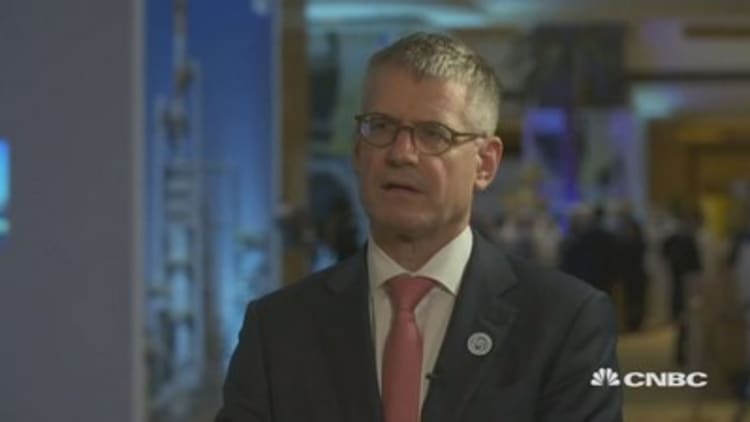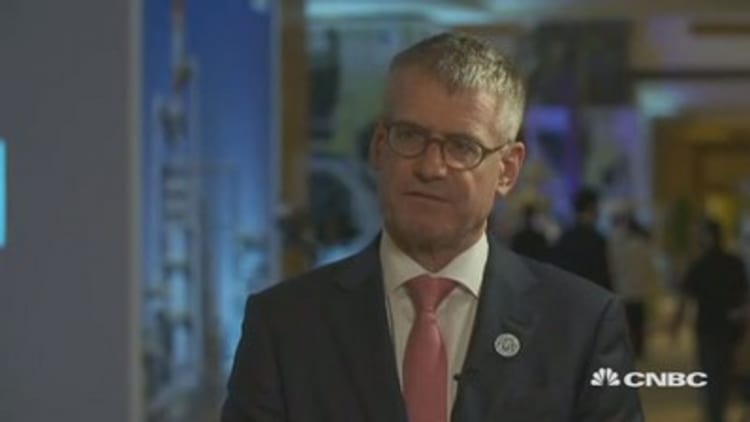
The growth of the shale industry will strengthen the U.S. for the next 15 to 20 years, Borealis Chief Executive Mark Garrett told CNBC on Sunday.
"We're very positive on the U.S. because the shale oil, the shale gas, we think that the ethane pricing, and the ethane through to polyethylene — and you could even go through into polypropylene from the propane — we think that will be very strong for the next 15-20 years out the U.S.," Garrett said in an interview with CNBC's Hadley Gamble.
"So we've actually got a large project with Total, we're building a $3.2 billion complex near Houston. And we think that that's going to be the future. The U.S. for the next 15-20 years looks very promising."
Garrett added that President Donald Trump's tax cuts "have not been bad for business."
Borealis, Total and NOVA Chemicals formed a joint venture to boost petrochemicals facilities in Texas earlier this year.
The U.S. shale market has grown in recent years following the advent of drilling techniques including fracking, or hydraulic fracturing. The growth of natural gas production and exports in the U.S. comes at a time when the Organization of the Petroleum Exporting Countries (OPEC) — a collective of the world's biggest oil exporters — and Russia are cutting supply.
No impact from US' Iran deal exit
Oil prices rose last week after Trump said he would withdraw from a historic nuclear deal with Iran.

Trump said the U.S. administration would restore sanctions on Iran. The deal, achieved in 2015 under former President Barack Obama, lifted sanctions on Iran that had cut its oil exports roughly in half. In exchange for sanctions relief, Iran accepted limits on its nuclear program and allowed international inspectors to visit its facilities.
Asked whether he was concerned about Trump's move, Garrett told CNBC: "Well, for us at the moment we don't have a specific impact. It's much more that we have to watch these global movements and then you have impacts because the oil price starts to move up, the cost of products starts to change and things like that."
He added: "Actual supply chains are immune at the moment to these problems."


